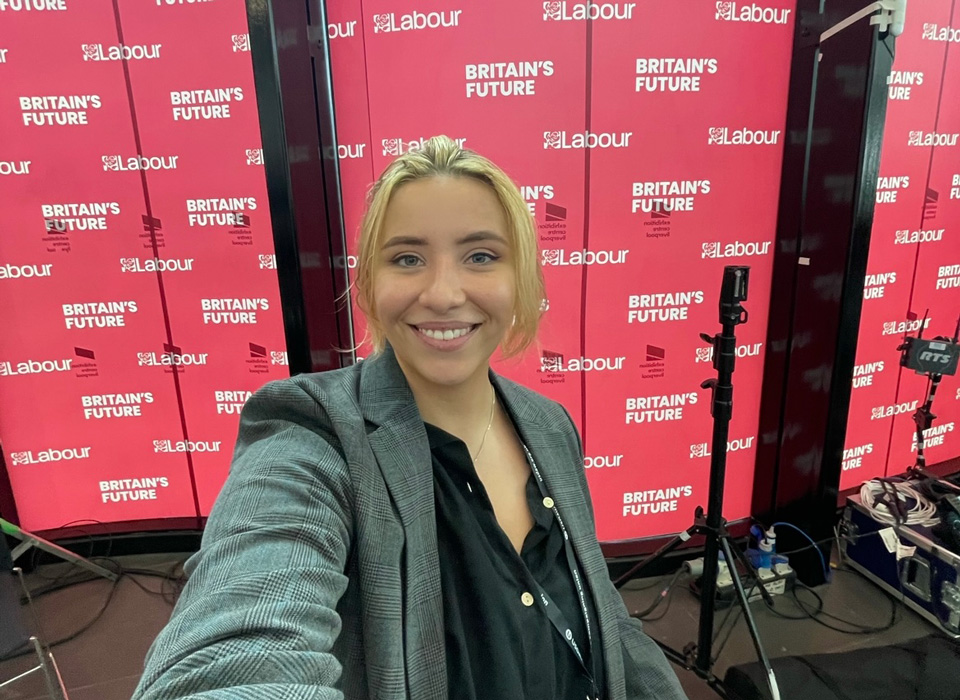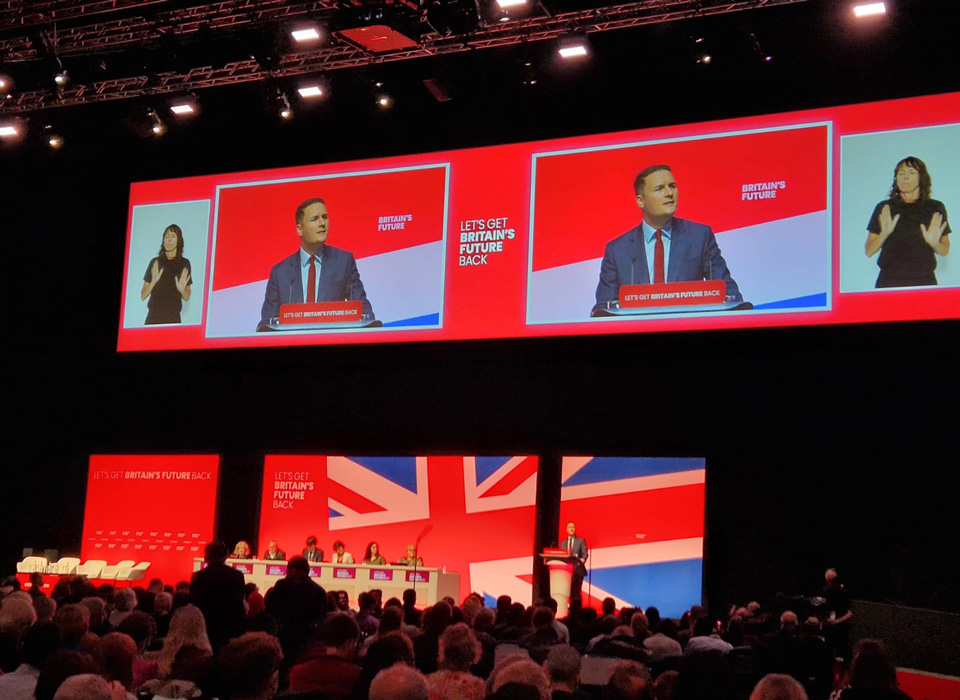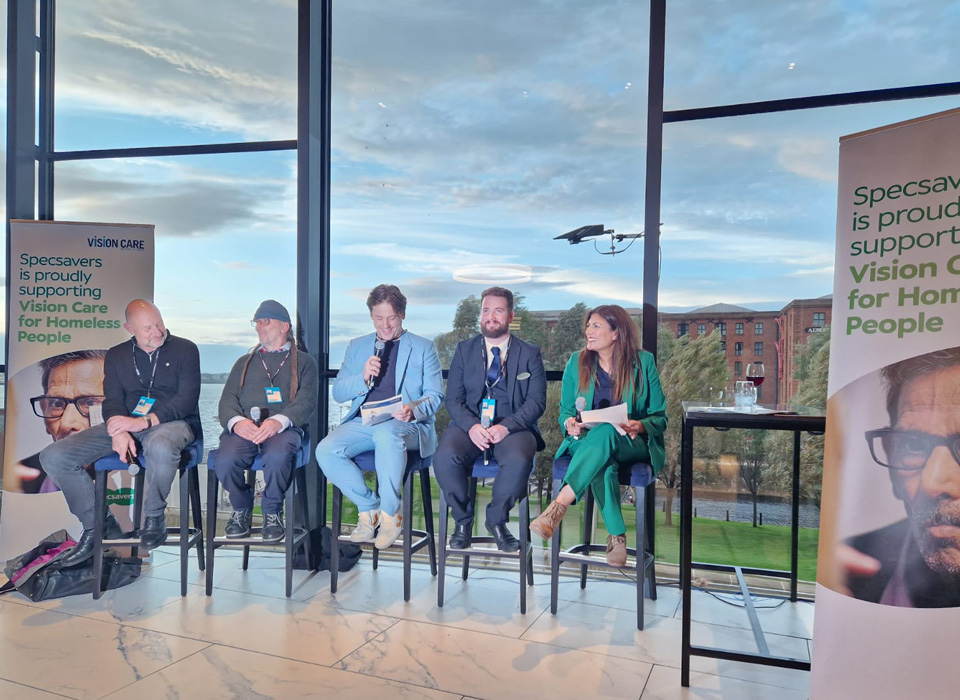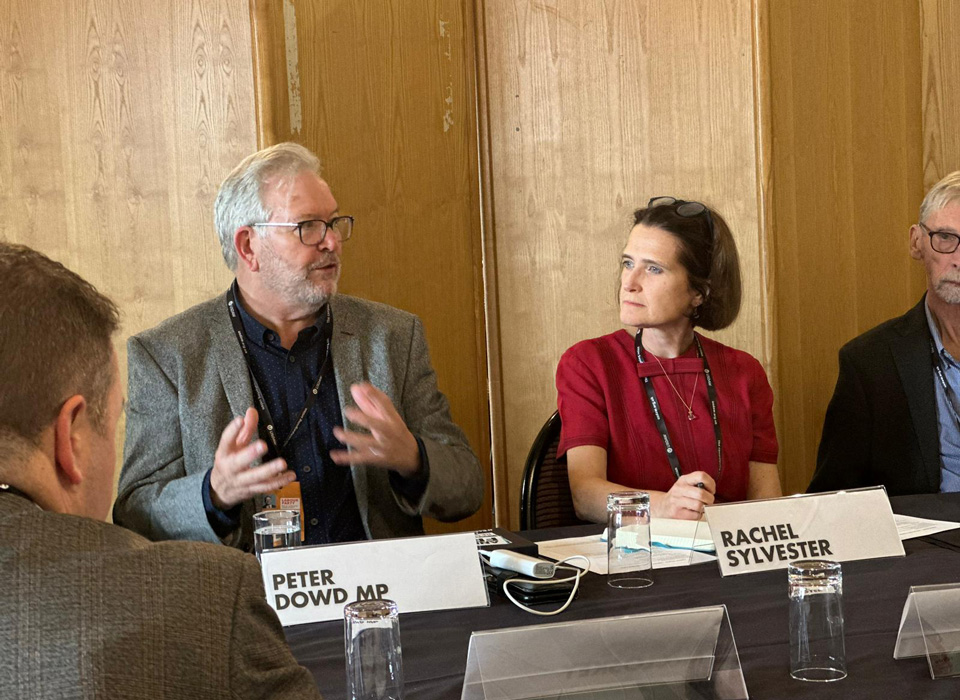The Labour party conference: ‘the biggest conference the Labour Party has ever held’
AOP external affairs officer, Freya Stenton, shares insight into the AOP’s voice and making connections at the Labour party conference

30 October 2023
Welcome to the third and final installment of my party conference blogs. On the agenda this week is the Labour party conference, held inLiverpool earlier this month.
Arriving at Liverpool Lime Street ahead of the conference, it was obvious that the world and his wife had flocked to the seaside city in order to support or lobby the ‘future’ government (according to recent polls).
Considering the current projections for the outcome for the next General Election, it is unsurprising that this was the biggest conference the Labour Party has ever held. With this in mind, four members of AOP approached the event with a distinct plan.
As such, we split up and looked for clues (or actually fringe events) related to healthcare, with the aim of getting some face time with shadow ministers and MPs who have a special interest in eye care reform.
Having the largest number of team members at this conference certainly worked in our favour, considering the amount of healthcare events that occurred simultaneously across the three days.
Considering the current projections for the outcome for the next General Election, it is unsurprising that this was the biggest conference the Labour Party has ever held
Much like the Conservative conference, our CEO, Adam Sampson, was invited to speak on behalf of the AOP, at a Specsavers fringe event titled Seen and heard: Building an inclusive optometry and audiology pathway. Crucially, Preet Kaur Gill, the recently appointed Shadow Minister for Primary Care and Public Health, also appeared on the panel and showed a real interest in reforming the position of optometrists within the primary care system.
During the event, Adam highlighted the role that optometrists can take as a solution for an incoming administration. Considering the expertise, the number of premises, and the equipment currently available to the optometric workforce, the question becomes, ‘Why hasn’t our position already been bolstered as a clinical force preventing sight loss?’
The question posed above was the one we led with as we traversed the vast plains (hotels and conference centres) throughout the event.
Over the two days, Adam once again spoke at the NHS Providers Roundtable, which, on this occasion, was attended by Karin Smyth, the shadow minister for health. The topic was once again workforce wellbeing, however Adam (never wanting to let an opportunity pass him by) weaved our three quick wins into the conversation. These three quick wins include:
- Basic IT connectivity in place between primary and secondary care to speed up patient referrals
- Extending the scope of community eye care services so more patients get the care they need, closer to home
- Widening the prescribing powers of optometrists to alleviate pressure on GP services, hospital eye departments and A&E.
Afterwards, Adam caught up with Smyth and proposed a meeting post-conference to further discuss the future of optometry within the healthcare workforce. While nothing is guaranteed as MPs are famously busy, we have begun to get our name on the map.
Of course, the work does not stop here: there is copious amounts of follow up to proceed with. However, it is important to remember that any activity that I or the team begin now, would be impossible without attending these party conferences.
Our reasoning for being at conferences – to represent our members – is one we have and will always take seriously
Throughout our days at conference, I am almost positive that Wes Streeting, Shadow Secretary of State for Health and Social Care, became utterly sick of seeing my face in the crowd. I made sure that I or a member of our team was front row at all of his fringe events – this was the best I could do short of personally tailing him.
It cannot be understated however that speaking to Wes was comparable to breaking into Fort Knox, but this did not inhibit our attempts. I sat in on a particularly interesting interview between Streeting and Andrew Marr, the famous political TV personality.
During that interview, Streeting highlighted his dedication to improving primary care as the front door to the NHS. Based on his assertions, we can only heighten our efforts to get change within the optometric sector firmly on the roadmap within the Labour Party.
Navigating the subleties of persuading stakeholders to firstly, listen to our proposals, and secondly, action them, is a paradox that I do not claim to be an expert in. Yet, bearing in mind that this venture into conference season was the AOP’s first attempt at instigating influence, we reflect on it as being a huge success. I know that I have added a joke (or two) into these blogs, but our reasoning for being at conferences – to represent our members – is one we have and will always take seriously.
Read Freya’s previous blogs on the Liberal Democrats party conference.
Read Freya’s blog on the Conservative party conference.
AOP at the Labour Party Conference

4 images





Comments (0)
You must be logged in to join the discussion. Log in